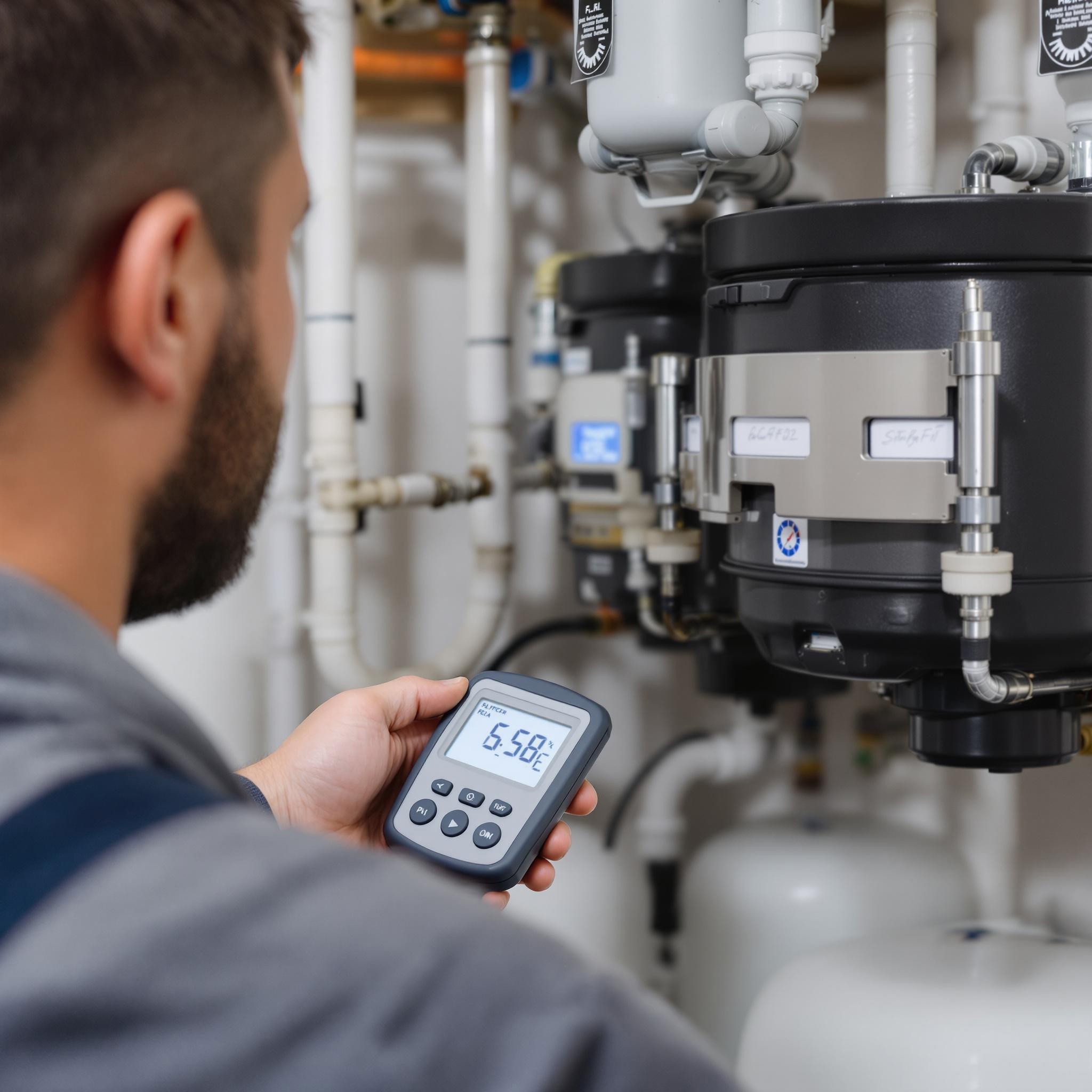Family & Veteran Owned Business Serving Hernando, Pasco, & Citrus Counties – Call Today! (352) 587-5898 | (352) 422-2134
Experience Fresher, Safer Water with a Trusted Water Purification Systems
Water is something we use without a second thought—until it starts tasting strange, smelling off, or leaving stains behind. Whether you’re drinking it, cooking with it, or using it in your business operations, water quality matters more than most people realize. That’s where a trusted water purification system makes a real difference.
Whether you’re a homeowner concerned about what’s in your tap water or a business owner needing consistent water quality for daily operations, investing in a reliable water filtration system isn’t just smart—it’s essential.


Why Water Purification Matters
Even if your water looks clean, it doesn’t necessarily mean it’s free of contaminants. Many impurities, from chlorine and sediment to heavy metals and bacteria, are invisible to the eye and undetectable by taste or smell.
Municipal water can still carry trace chemicals. Well water may contain minerals, rust, or microbes. And in some areas, hard water or acidic conditions slowly damage pipes and appliances over time.
That’s why so many homes and businesses are turning to custom water filter systems for a safer, cleaner supply.
Key Benefits of Installing a Water Filter System
Still on the fence about getting one installed? Here’s what a quality home water filtration or
commercial water filtration system can offer:
Cleaner, safer water
filters out harmful substances such as lead, chlorine, bacteria, and volatile organic compounds (VOCs).
Better Taste and Smell
No more metallic aftertaste or chemical odors.
Longer-Lasting Appliances
Protects water heaters, dishwashers, coffee machines, and more.
Eco-Friendly
Reduces plastic bottle use and overall water waste.
Budget-Friendly
Helps cut down on plumbing repairs, system upkeep, and the need for bottled water.
Common Types of Water Filtration Systems
Water treatment isn’t a one-size-fits-all approach—that’s why it’s important to understand the various options available.
Whole House Filtration System
A whole-home solution that filters all water entering your home, protecting plumbing, fixtures, and appliances from contaminants. Effective at removing chlorine, particles, and naturally occurring organic substances.
Tap Water Filter Systems
Simple and effective, these are installed at a single faucet and are commonly used to improve drinking and cooking water. Great for renters or smaller households.
Well Water Filtration Systems
Tailored for private well users, these systems are designed to target iron, sulfur, bacteria, and other minerals common in groundwater. A well water filter is often paired with pre-treatment or softening equipment depending on local water chemistry.
Strange stains in sinks or tubs Drinking Water Filtration Systems
Often installed under the sink, these filters focus on producing high-quality water for consumption. Many include multiple stages of filtration, including carbon, reverse osmosis, and UV sterilization.
Alkaline Water Filters
These systems not only filter out contaminants but also increase the water’s pH, creating a more alkaline profile with a smoother, improved taste. Some users prefer this for the added minerals and perceived health benefits.
Hard Water Filters
These systems target calcium and magnesium—key minerals behind limescale buildup and soap residue. A hard water filter or water softener can help prevent long-term plumbing issues and improve water feel.
Commercial Water Filtration Systems
Designed for larger-scale use, these setups serve businesses that depend on consistent water quality—like restaurants, medical facilities, and manufacturing plants. High flow rates, tailored media, and regulatory compliance are top priorities here.
Choosing the right water filtration system can be daunting with all the options out there. But it doesn’t have to be. Here’s a quick guide to help you decide:
Is your water from a well, city supply, or another source?
Water testing helps identify what you're trying to remove.
Are you focused on health, taste, appliance protection, or all of the above?
Higher demand requires systems built to handle more gallons per minute.
Consider maintenance, filter replacement costs, and warranties.
And remember: working with a water treatment specialist ensures your system fits both your water and your lifestyle.

Water Filtration vs. Water Purification
Although these terms are often used as synonyms, they actually refer to different concepts:
Water filtration usually involves using materials such as carbon or sand to physically or chemically eliminate impurities and particles.
Water Purification often includes additional processes like UV treatment, reverse osmosis, or deionization, and is aimed at delivering ultra-clean water, often for drinking or sensitive commercial applications.
In many systems, the two methods work together—first filtering out larger particles, then purifyingwhat’s left for safer, higher-quality water.
A water purification system is any setup designed to remove contaminants, neutralize unwanted elements, or improve the overall quality of your water supply. These systems come in a wide range of styles and functions, from point-of-use filters at a kitchen sink to full-scale whole house filtration
systems that treat every drop entering the building.
The right system for you depends on your water source, specific contaminants, and your goals— whether that’s cleaner drinking water, extending appliance life, or improving taste and odor.

To keep your water filtration system running at peak performance, here’s what to keep in mind:
• Change your filters on a consistent schedule—usually somewhere between 3 and 12 months,
depending on your water usage and the type of system you have.
• Flush and clean the system if you notice pressure drops or taste changes
• Have your water re-tested annually, especially if you’re on a private well
• Schedule professional servicing for more complex or commercial-grade setups
A well-maintained system not only performs better—it lasts longer and saves you money over time.

The best way to understand your water’s contents is through proper testing. Regardless of whether you’re using city water or drawing from a private well, regular testing can reveal:
• High chlorine levels
• pH imbalance
• Bacteria and viruses
• Hardness minerals
• Rust, sediment, or silt
• Pesticides or industrial chemicals
Once you know what you’re dealing with, choosing the right water purifier for home or business becomes much easier—and much more effective.
Clean, reliable water isn’t a luxury—it’s a necessity. With the right water purification system, you can take full control of your water quality, whether you’re filling up a glass at the kitchen sink or running a commercial facility.
From well water filtration systems to whole house filtration, and from alkaline water filters to commercial water purification, there’s a solution that fits your needs. The key is knowing what your water needs—and choosing a system that solves the problem at the source.
